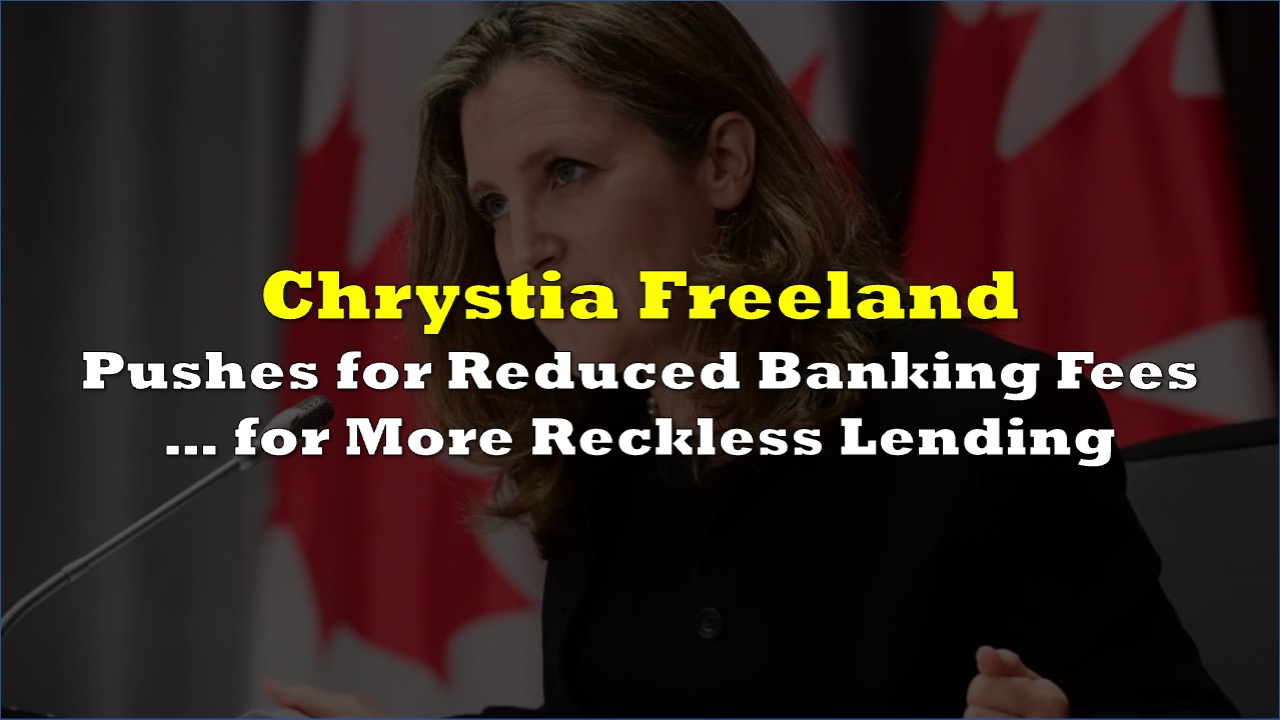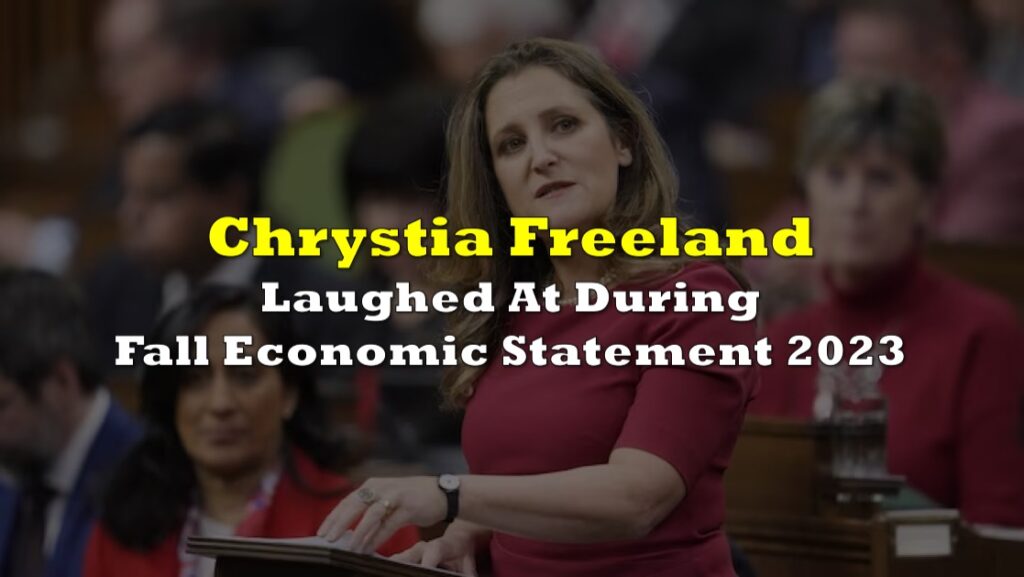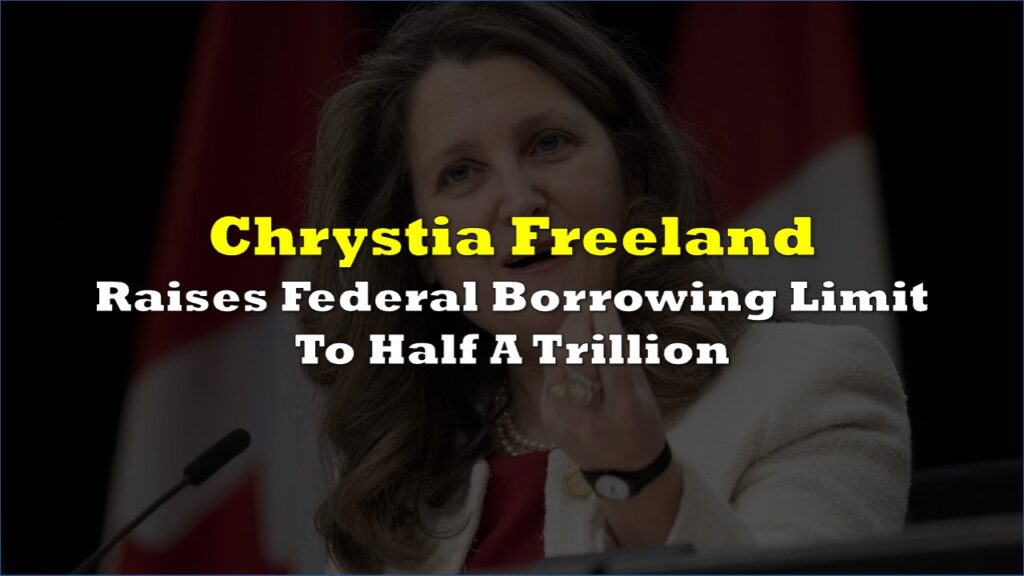Finance Minister Chrystia Freeland revealed during a news conference that Ottawa is implementing new guidelines to assist financially stressed mortgage borrowers in managing their increasing payments.
Additionally, the government is instructing the Financial Consumer Agency of Canada (FCAC) to establish expectations for lenders to reduce fees associated with personal banking accounts and services, including overdraft fees.
These measures are part of a broader strategy targeting the banking sector. Over the past two years, the government has introduced three tax changes, requiring banks and insurers to contribute significantly to government initiatives and debt reduction.
While these measures are aimed at safeguarding the country’s financial stability, they have garnered criticism from the Canadian Bankers Association as well as some observers who see the measures as enabling further reckless lending.
I don’t believe she fully understands what she’s asking the banks to do. 😂
— EconomicWoes 🦁 (@ManyBeenRinsed) October 18, 2023
Imagine begging the banks to add further debt to mortgage holders with negative amortizations in a high inflation and high rate environment.
Welcome to Canada. Land of the fuckery. 🇨🇦 pic.twitter.com/VrzUCQkJBA
The newly announced guidelines for mortgage support were initially introduced by the FCAC in July. These guidelines provide a framework for banks to assist existing residential mortgage borrowers facing severe financial challenges, including extending the amortization periods of loans to help borrowers adapt to higher costs.
Freeland disclosed that she met with the CEOs of major banks to discuss these guidelines and emphasized the government’s expectation of their compliance. The government intends to closely monitor banks’ adherence to these guidelines in the coming weeks.
Furthermore, the government is encouraging the FCAC to establish expectations for free or low-cost personal banking accounts and urging banks to reduce or eliminate fees for services like online payments, debit transactions, overdrafts, and e-transfers.
To improve the resolution of banking-related consumer complaints, the government designated the Ombudsman for Banking Services and Investments (OBSI) as the sole independent organization for handling disputes in the sector. Previously, banks could choose between OBSI and the ADR Chambers Banking Ombuds Office, resulting in inefficiencies and delays in addressing consumer complaints. This change aims to provide Canadians with an independent, transparent, and non-profit dispute resolution process.
However, OBSI will not have the authority to compel banks to follow its decisions until November 2024, following a one-year transition period. These measures collectively seek to protect Canadians by ensuring that financial institutions provide tailored relief to borrowers and fair treatment to all banking consumers.
Information for this story was found via the sources and companies mentioned. The author has no securities or affiliations related to the organizations discussed. Not a recommendation to buy or sell. Always do additional research and consult a professional before purchasing a security. The author holds no licenses.












One Response
So your proof of the likelihood of enabling reckless lending is a “tweet” by some random disgruntled person who has no credentials and no sense of decorum. “Land of the fuckery.” Enough already of not fleshing out a concern fully. Yes, amortization will be extended….not ideal but something at least. What is your suggestion? Who else is weighing in other than Mr. Fuckery? Disappointing soundbite style reporting. We can do better.